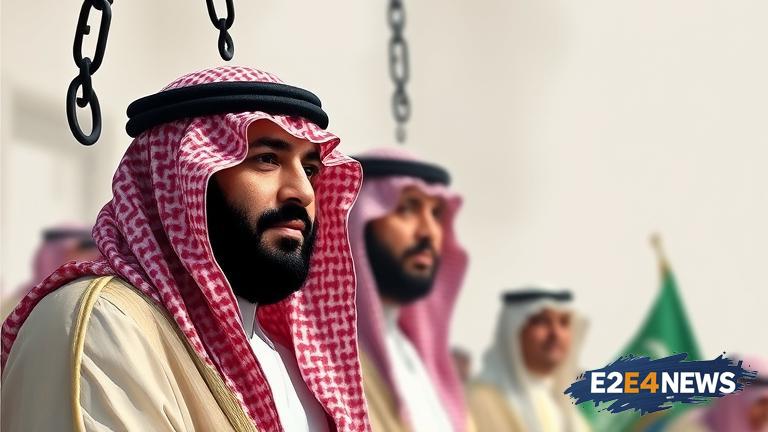Saudi Arabia has been making headlines recently with its rapid pace of executions, with 17 people put to death in just three days. This sudden surge in executions has raised serious concerns about human rights in the country, particularly in light of its ongoing efforts to reform and modernize. The executions, which took place between April 10 and 12, were carried out by beheading, a method that has been widely criticized by human rights groups. The individuals executed were convicted of various crimes, including murder, terrorism, and drug trafficking. However, human rights organizations have expressed concerns about the fairness of the trials and the lack of transparency in the judicial process. Many of those executed were reportedly subjected to torture and other forms of mistreatment while in custody, which raises questions about the reliability of their confessions. The Saudi government has defended its use of capital punishment, citing the need to maintain law and order and protect national security. However, critics argue that the executions are often arbitrary and disproportionately target certain groups, such as minority Shiites and migrant workers. The recent execution spree has sparked widespread condemnation from human rights groups and governments around the world. The United Nations has expressed concern about the increasing number of executions in Saudi Arabia, which has already put to death over 100 people this year. The European Union has also criticized the Saudi government’s use of capital punishment, calling it a ‘cruel and inhumane’ practice. Despite the international outcry, the Saudi government appears to be pushing ahead with its execution plans, with dozens more people reportedly on death row. The executions have also raised concerns about the impact on Saudi Arabia’s relations with other countries, particularly in the West. The US, which has traditionally been a close ally of Saudi Arabia, has expressed concerns about the human rights situation in the country. The UK has also criticized the Saudi government’s use of capital punishment, with the Foreign Office stating that it is ‘opposed to the death penalty in all circumstances’. The recent execution spree has also sparked debate about the role of Saudi Arabia’s powerful Crown Prince, Mohammed bin Salman, who has been driving the country’s reform efforts. While Prince Mohammed has introduced a number of reforms aimed at modernizing the country and improving its human rights record, critics argue that these efforts are being undermined by the continued use of capital punishment. The Saudi government has also faced criticism for its treatment of minority groups, including Shiites and migrant workers. Many of those executed in recent days were reportedly from these groups, which has raised concerns about discrimination and unequal treatment. The executions have also highlighted the need for greater transparency and accountability in Saudi Arabia’s judicial system. Human rights groups have called for the Saudi government to establish an independent commission to investigate allegations of torture and mistreatment, as well as to review the cases of those on death row. The international community has also urged the Saudi government to consider alternative forms of punishment, such as life imprisonment, which would help to reduce the number of executions. In conclusion, the recent execution spree in Saudi Arabia has raised serious concerns about human rights in the country, particularly in light of its ongoing reform efforts. While the Saudi government has defended its use of capital punishment, critics argue that it is a cruel and inhumane practice that undermines the country’s progress towards modernization and reform. As the international community continues to pressure the Saudi government to improve its human rights record, it remains to be seen whether the country will take steps to address these concerns and reduce its reliance on capital punishment.
